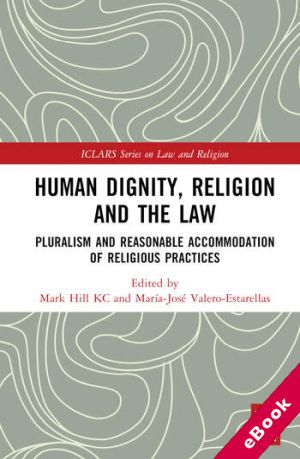
The device(s) you use to access the eBook content must be authorized with an Adobe ID before you download the product otherwise it will fail to register correctly.
For further information see https://www.wildy.com/ebook-formats
Once the order is confirmed an automated e-mail will be sent to you to allow you to download the eBook.
All eBooks are supplied firm sale and cannot be returned. If you believe there is a fault with your eBook then contact us on ebooks@wildy.com and we will help in resolving the issue. This does not affect your statutory rights.
The concept of human dignity is already embedded in the constitutional architecture of the European Union and throughout the world, but it remains a slippery and elusive concept. In this volume, leading commentators from across the globe address the shift from the monolithic influence of major world religions in the past towards religious pluralism coupled with the increased secularism of civil society. The contributors, drawn from different backgrounds and traditions, explore how the deployment of a nuanced understanding of human dignity can provide a way to maximise religious liberty for all within liberal democracies. Specific consideration is given to the reasonable accommodation of religious practices through exemptions to generally applicable laws, conscientious objection on the grounds of religious beliefs, the interplay between religious pluralism and legal pluralism, balancing religious sensibilities with same-sex marriage, exercising the right to change one’s religion, both generally and with a particular focus on data protection, protecting the right to asylum in the light of recent changes in migratory flows, and exploring its impact on those enjoying non-theistic beliefs, as well as the complex relationship between the Ukrainian and Russian Orthodox Churches in these febrile times. Through the prism of informed investigation of these matters of specificity, the volume offers readers fresh insights and analysis which collectively contribute to an overall picture of governments in liberal democracies being encouraged and enabled to foster laws and practices whereby pluralism can be encouraged, and human dignity can flourish.
The book will be of interest to academics, researchers and policy-makers working in the areas of Law and Religion, Human Rights Law, Constitutional Law and International Relations.